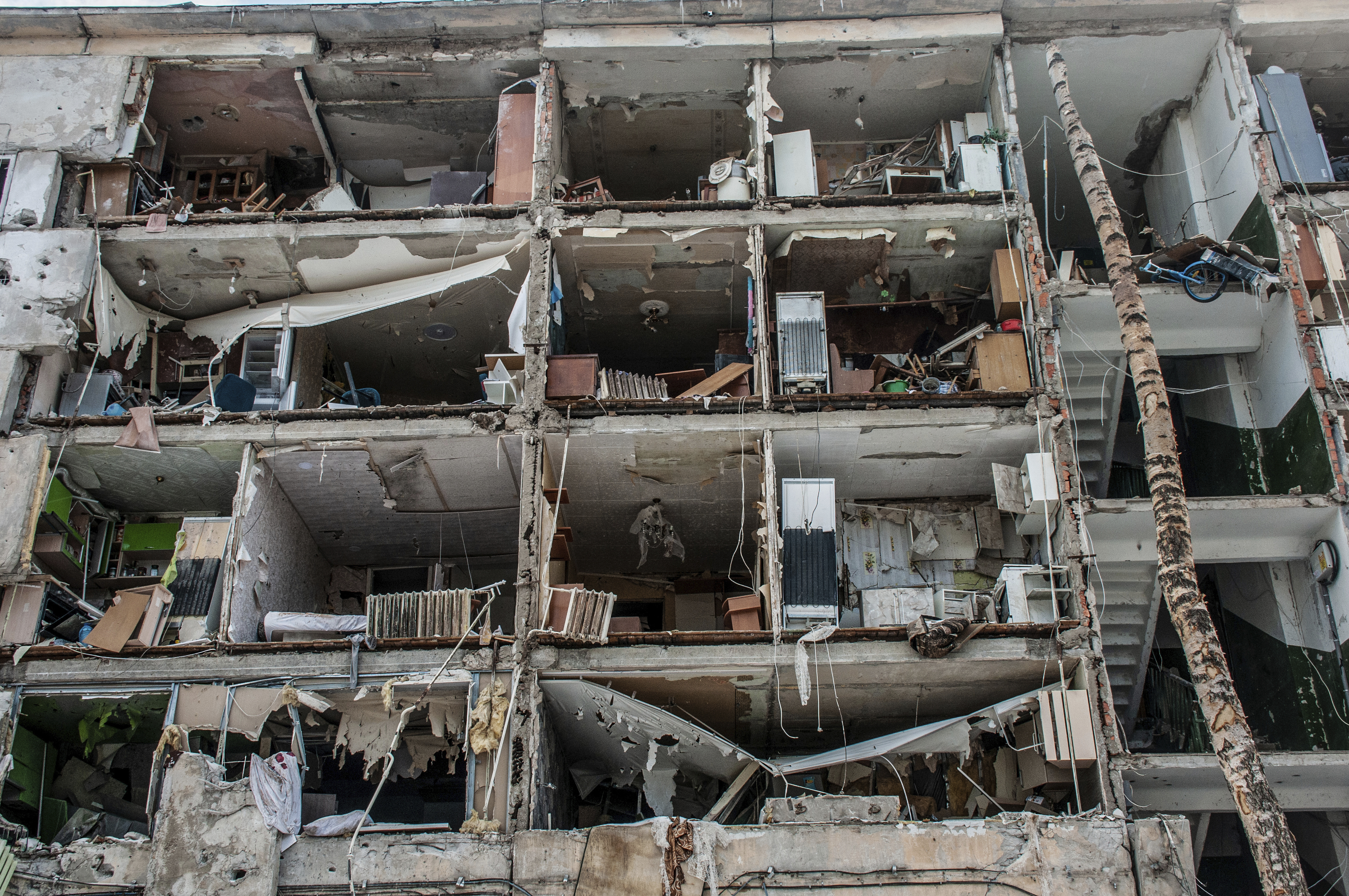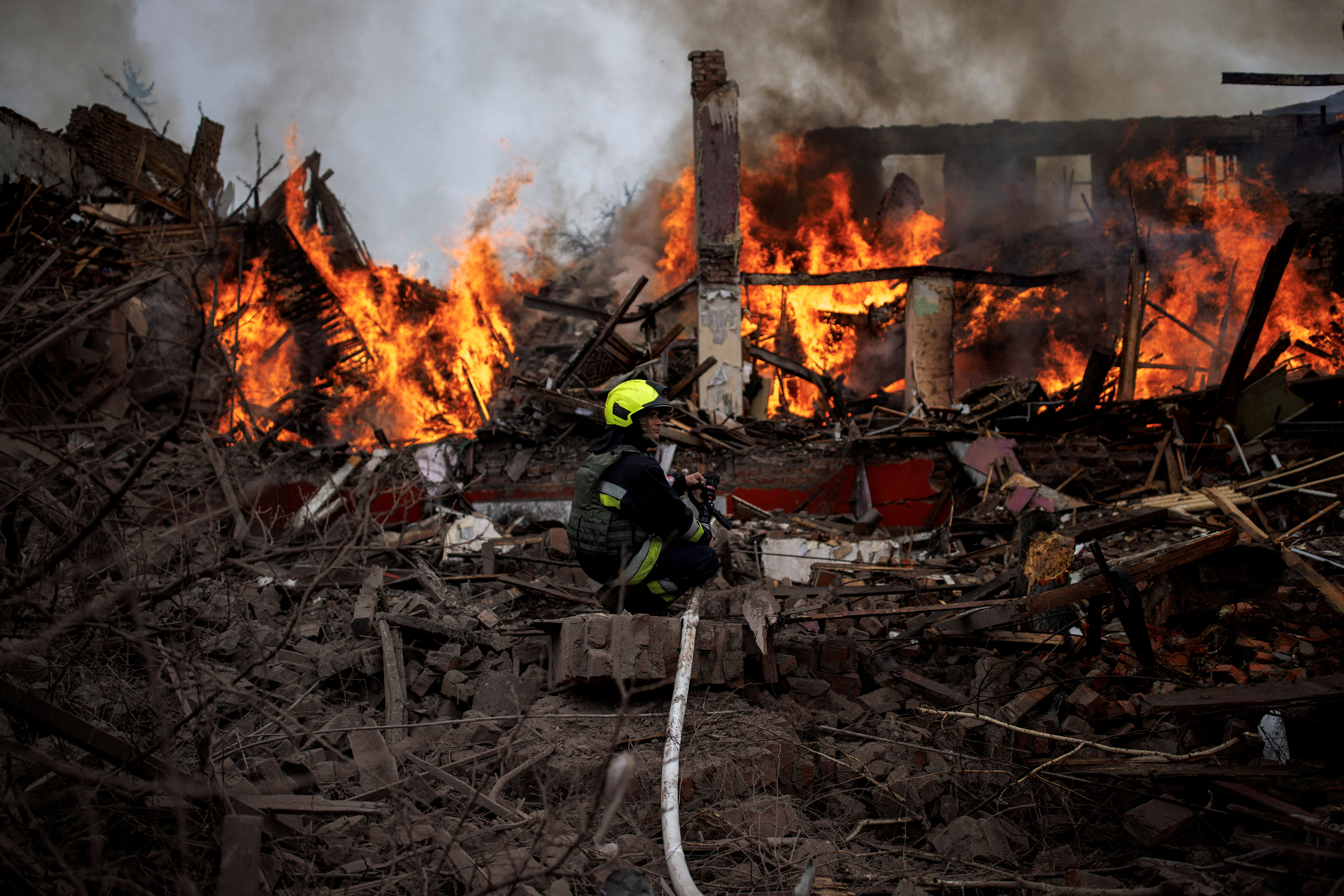
Vinnytsia, Ukraine – After seven weeks of living next to the sounds of constant pummelling by cruise missiles, shells, mortars and bombs, Ihor Saldyha can tell each of them just by listening.
“If I hear a dull sound – and then it goes slower, slower, slower, I understand this is an outgoing [strike],” said the 38-year-old resident of Kharkiv, a besieged eastern Ukrainian city that lies only 40km (25 miles) west of the Russian border.
A loud whistle means a cruise missile or shell is flying above his head and may land nearby. But the scariest, most unpredictable sounds come from bombers.
“Because you hear a loud buzz up in the sky, and it’s not clear whether it would drop the bomb or keep on flying,” said Saldyha, who works in marketing.

He talked to Al Jazeera by phone as he walked down a street observing plumes of black smoke spurting into the grey April sky from a giant burning market in northeastern Kharkiv.
The market, Barabashovo, is one of Eastern Europe’s largest, and when Russian shelling first set it afire a month ago, many in Kharkiv understood it was time to leave.
“The fire turned night into day,” Olena Kostyuchenko, a 29-year-old sales clerk and mother of two, told Al Jazeera from a room she rents in the central Ukrainian city of Dnipro.
The city lies some 200km (124 miles) southwest of Kharkiv, but has seen little shelling since the invasion began on February 24.

Unable to withstand the nerve-wracking pounding that has mostly been hitting northeastern and eastern districts, about a third of Kharkiv’s 1.5 million residents left, officials say.
This week, strikes on other parts of the city – closer to the city centre or even its south – were reported.
“In the past three days, the shelling got louder,” Saldyha said.
He thinks there are more Russian troops and artillery around Kharkiv because Moscow withdrew its forces from around Kyiv and the northern regions of Chernihiv and Sumy.
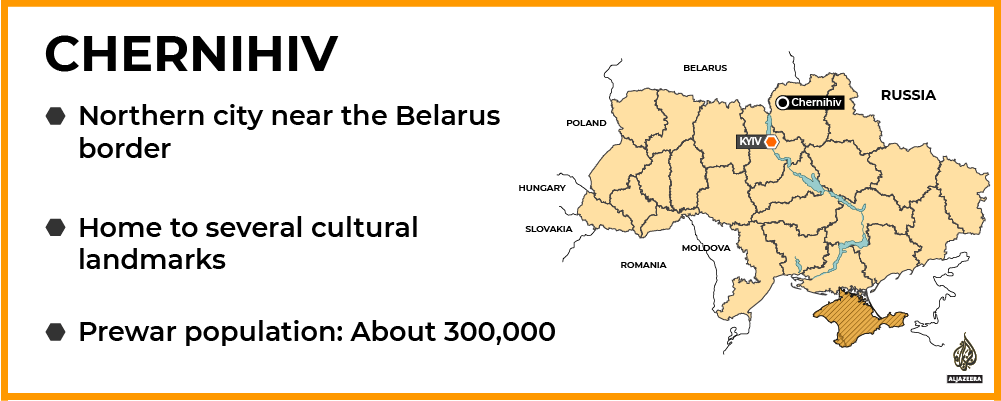
What seems to be a relief to people in the capital means more trouble for Kharkiv.
“It seems to me they brought in more heavy weaponry – artillery systems, multiple-rocket launchers that use cluster bombs,” Saldyha said.
But he, his wife and their 18-month-old son are staying put – even though they survived a tragedy.
His wife’s 82-year-old grandmother died on March 16 of a heart attack, and the family could bury her only 11 days later, because the morgues were full and only one cemetery was accepting bodies.
Some Kharkiv residents are afraid to leave their apartments. Others have taken precautions by permanently moving to the safe depth of the sprawling underground system, where each of 30 Soviet-era stations had been designed as a bomb shelter,
But shops and banks are working – and there are no lines. Most usual food items are available, although prices have increased amid the war.
People care about the elderly – helping them by buying groceries and pills, carrying their bags, or giving them a home-cooked meal.
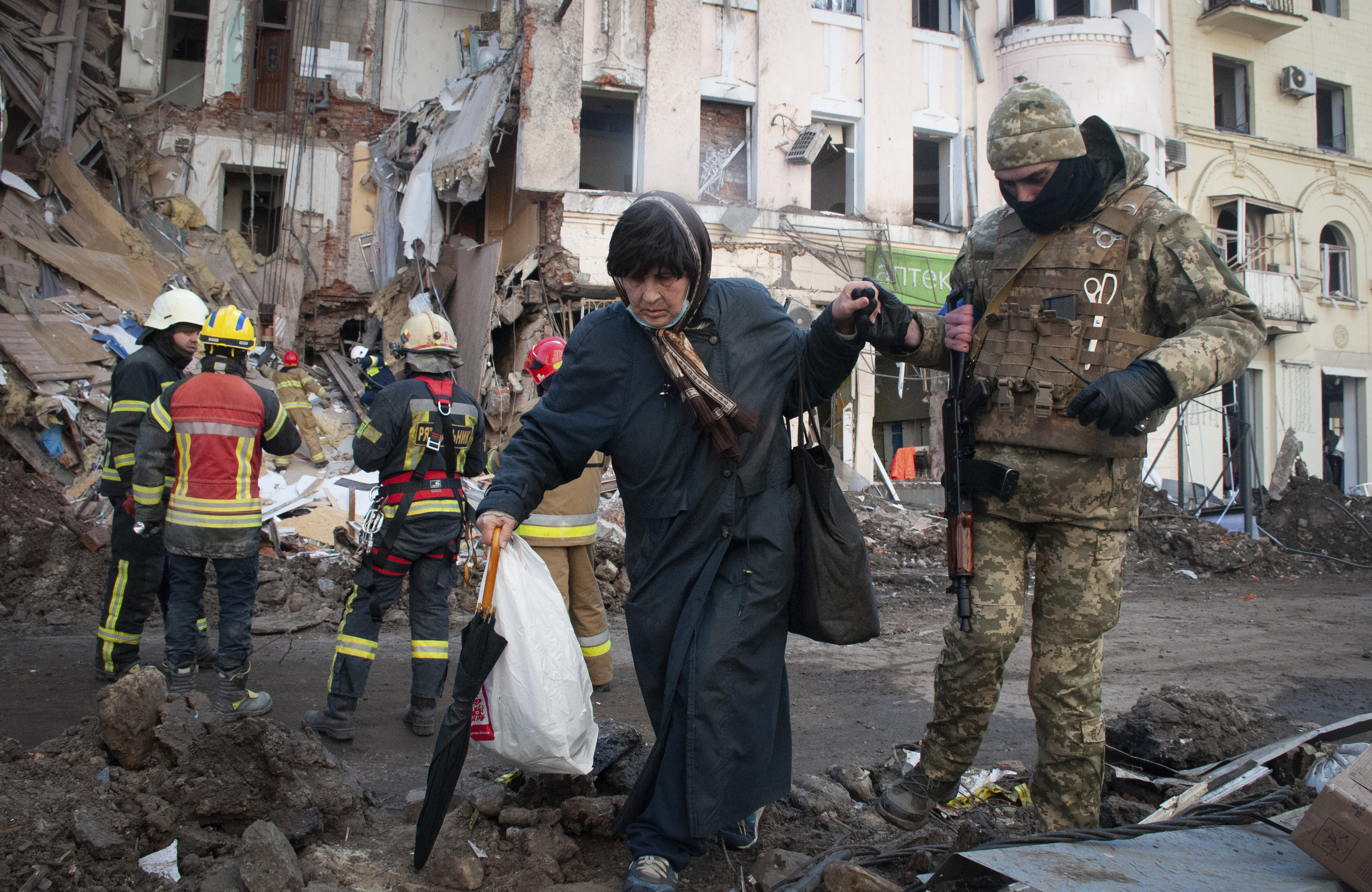
“There is an atmosphere of mutual help,” Saldyha said.
Most of the city does not look neglected.
Communal workers are seen planting flowers, traffic lights were switched back on earlier this week, and there are more cars on the streets as more people are coming back.
Their return is the best proof of Russia’s failure to take the city.
‘Everything will be decided in Donbas’
Shortly after the first bombs fell on a military airport outside Kharkiv, Russian President Vladimir Putin said that the “liberation” of Ukraine’s second-largest city, where the majority of the population speaks Russian, was one of his priorities.
In mid-March, some pro-Kremlin pundits were so sure that Kharkiv would fall, that they were preoccupied with the delivery of fresh water to its soon-to-be-liberated residents.
“We have to get bottled water ready … prior to the city’s liberation,” said Moscow-based political analyst Bogdan Bezpalko on March 16.
The Kremlin even “appointed” a new mayor – Dmitry Svyatash, a fugitive ally of former Ukrainian President Viktor Yanukovych who fled to Russia after months-long rallies in 2014, according to Mustafa Nayyem, whose call for protests started the rallies now known as the Revolution of Dignity.
But now in mid-April, Ukraine’s military and outside observers are confident that Moscow is no longer able to seize Kharkiv because it has exhausted and misspent its military resources.
And the pummelling that killed hundreds of civilians, dozens of children – and even rare animals from the Kharkiv zoo – is nothing but Putin’s revenge.
“Because the takeover is impossible, the Russian military keeps destroying the city’s infrastructure using heavy artillery,” Ukraine’s General Staff of Armed Forces said on Wednesday.
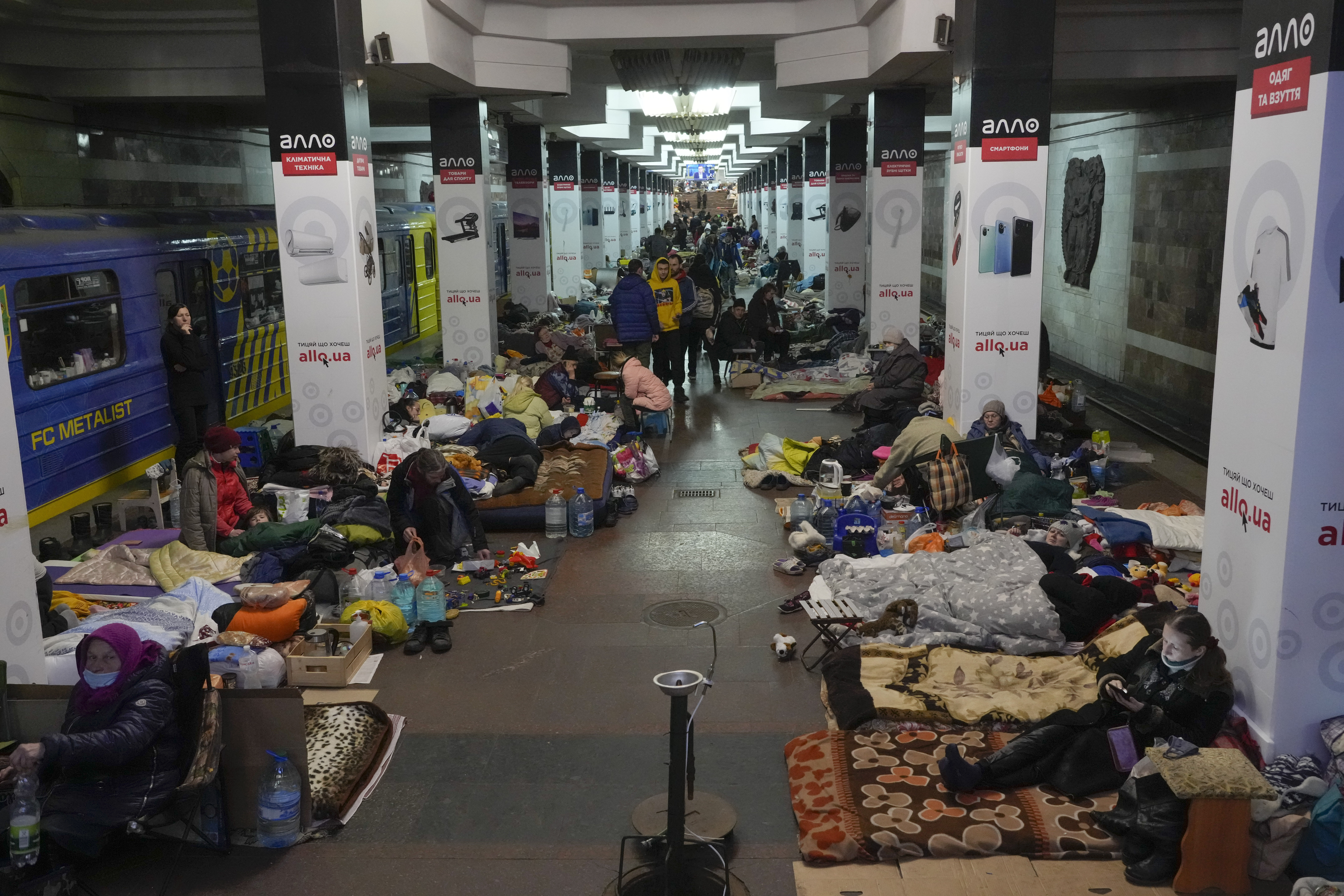
Instead, Russia redirected its troops to subjugate the southeastern Donbas region that has been partially controlled by pro-Moscow separatists since 2014.
“An assault on Kharkiv failed, although the city is constantly shelled,” Nikolay Mitrokhin, a Russia researcher with Germany’s University of Bremen, told Al Jazeera.
Saldyha agrees.
“In the coming two or three weeks everything will be decided in Donbas, and [Ukraine’s] destiny will depend on it,” he said.
Meanwhile, Putin’s staunchest supporters in Kharkiv – a minority that mostly consisted of elderly people nostalgic about their Soviet-era youth – had a change of heart, Saldyha said.
“When an incoming [shell] hits somebody’s house, his backyard, they realise everything at once. Where the shell came from, and who is doing it,” he said.
Seven weeks of war have taught him to cherish simple things around him, and he no longer spends his emotions on the prognoses about the city’s true liberation from the shelling and fear.
“Every day, we are happy about life. Rainfall, trees starting to sprout leaves – yes, this is good,” he said. “People try to fill their lives with little things.”
